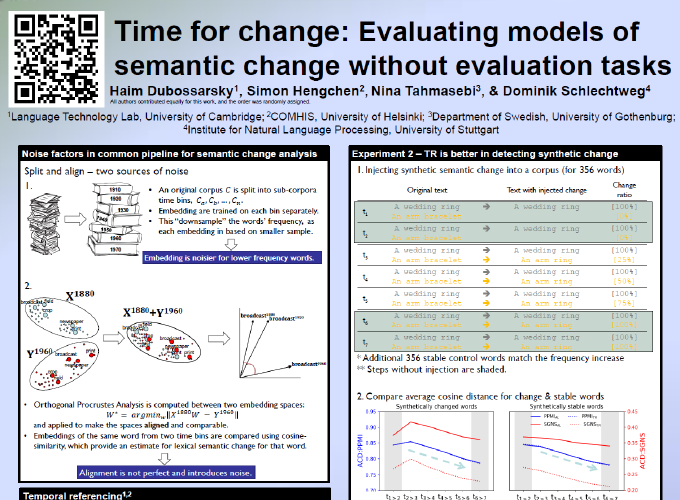
Time for change: Evaluating models of semantic change without evaluation tasks

Time for change: Evaluating models of semantic change without evaluation tasks
Abstract
State-of-the-art models of lexical semantic change detection suffer from noise stemming from vector space alignment. We have empirically tested the Temporal Referencing method for lexical semantic change and show that, by avoiding alignment, it is less affected by this noise. We show that, trained on a diachronic corpus, the skip-gram with negative sampling architecture with temporal referencing outperforms alignment models on a synthetic task as well as a manual testset. We introduce a principled way to simulate lexical semantic change and systematically control for possible biases.
Publication
In Cambridge Language Sciences Annual Symposium 2019: Perspectives on Language Change
Date
November, 2019
Links